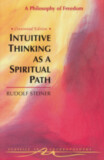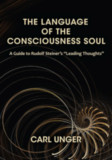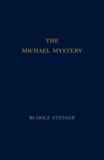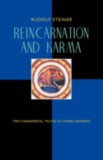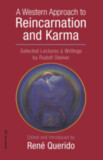- Publisher
SteinerBooks - ISBN 9781621483526
- Language English
- Pages 156 pp.
- Size 6" x 9.25"
5 lectures in Berlin, January 25 – February 8, 1916 (CW 166)
Abounding in lively anecdotes and fresh insights, these lectures draw the reader into a rich contemplation on the nature of necessity and freedom in human life and in the world. Rudolf Steiner weaves together seemingly disparate elements while resolving contradictions into a higher unity, showing us that, far from being mutually exclusive, necessity and freedom are intimately interwoven in the intricate tapestry of life.
Every external event has a counterpart in the spiritual world, and what is true on the physical plane often appears very different on the spiritual plane. There, spiritual beings are active in the unfolding of destiny. Thus, an event might intervene in the course of earthly life with the iron law of necessity and, at the same time on a higher level, create a possibility for free action. A tragedy on the physical plane—for example, deaths of a group of people in a car accident—might be experienced by the souls of the victims as a source of great joy across the threshold, because they have received a new and important task in the spiritual world.
Steiner expands on his central theme with a fascinating account of three teachers with different attitudes to life—one ahrimanic, another luciferic, and a third who takes the path of progressive development. The third, instead of dwelling on past mistakes or successes, seeks to meet the children as they are now in the present before him. By meeting what isand not what was, we open the door to freedom.
Nature was once a free deed of the gods, and the past thoughts of the gods appear to us as necessity. Similarly, our present life of thought will become the future world of outer nature. In the future, the world will look bleaker and the will have less strength. Spiritual science will then reawaken consciousness of the human aura, bring about a strengthening of will, and enable a valid understanding of past lives. Spiritual science is necessary now as an evolutionary development, and yet we can take it up only in freedom.
Other subjects covered in the lectures include: the legend of the astronomical clock in Prague; the activities of Ahriman and Lucifer; Faust as an evolutionary factor independent of Goethe; the historic conflict of the Roman world and the Teutonic tribes; and the importance of viewing historical events in light of intentions rather than results.
An incisive study of the mysteries of existence, this book is sure to inspire all who explore its pages.
This volume is a translation from German of Notwendigkeit und Freiheit im Weltengeschehen und im menschlichen Handeln (GA 166).
C O N T E N T S:
Introduction
Lecture One: The past shows us a picture of necessity. The future leaves the possibility open for freedom. Kant’s antinomian chart. Limitation of logic when we approach infinity. An example with numbers. The Prague Clock. Every external event has an elemental one underlying it. What is true on the physical plane often looks different on the spiritual plane. Beings are active on the elemental plane. In the physical realm, things can be proved, whereas in the suprasensory realm, they are perceived. Mystery of Golgotha a free deed. Haeckel and the war.
Lecture Two: The legend of the Prague Clock and the workings of Ahriman and Lucifer. Law of cause and effect applies in the physical world. Historical events must be judged according to their intrinsic value. A condemnation of Goethe’s Faust. Freedom and necessity mingle in human actions. Nature once a free deed of the gods. Past thoughts of the gods appear to us as necessity. Our present life of thought will be the outer nature of the future.
Lecture Three: Illustration of three teachers with different attitudes to life, one is ahrimanic, another luciferic, and the third takes the path of progressive development. We must get to know the hidden forces behind ongoing events. Our actions can be influenced by pre-birth experiences. Two things combine in human beings, the stream of heredity and the spiritual part. Learning from life strengthens us.
Lecture Four: Conflict of the Roman world and Teutonic tribes as basis of further historical development. Incursion of spiritual impulses in historical events. Unsuccessful actions are also necessary. Punishment as an enhancement of consciousness. Faust as an evolutionary factor. Greatest freedom involved in performing what is a necessity in world history. Empty space in world processes for certain impulses. Essential part of the will of angels is the intention. The animal in us as the cause of crime. Spiritual science now necessary, yet we can take it up in freedom. Right intentions lead to right results.
Lecture five: The “I” is found on the physical plane in acts of will. In the Middle Ages people still experienced auras. In the future, the world will look bleaker and the human will will have less strength. Spiritual science will bring consciousness of the aura and a strengthening of will. Human beings in the grip of dreaming and ecstasy. Necessity of developing thinking and willing. The true “I” found through the Christ-impulse. We shall then have memory of past lives.
Editorial and Reference NotesRudolf Steiner’s Collected Works
Significant Events in the Life of Rudolf Steiner
Index
Rudolf Steiner
Rudolf Steiner (b. Rudolf Joseph Lorenz Steiner, 1861–1925) was born in the small village of Kraljevec, Austro-Hungarian Empire (now in Croatia), where he grew up. As a young man, he lived in Weimar and Berlin, where he became a well-published scientific, literary, and philosophical scholar, known especially for his work with Goethe’s scientific writings. Steiner termed his spiritual philosophy anthroposophy, meaning “wisdom of the human being.” As an exceptionally developed seer, he based his work on direct knowledge and perception of spiritual dimensions. He initiated a modern, universal “spiritual science” that is accessible to anyone willing to exercise clear and unbiased thinking. From his spiritual investigations, Steiner provided suggestions for the renewal of numerous activities, including education (general and for special needs), agriculture, medicine, economics, architecture, science, philosophy, Christianity, and the arts. There are currently thousands of schools, clinics, farms, and initiatives in other fields that involve practical work based on the principles Steiner developed. His many published works feature his research into the spiritual nature of human beings, the evolution of the world and humanity, and methods for personal development. He wrote some thirty books and delivered more than six thousand lectures throughout much of Europe. In 1924, Steiner founded the General Anthroposophical Society, which today has branches around the world.




